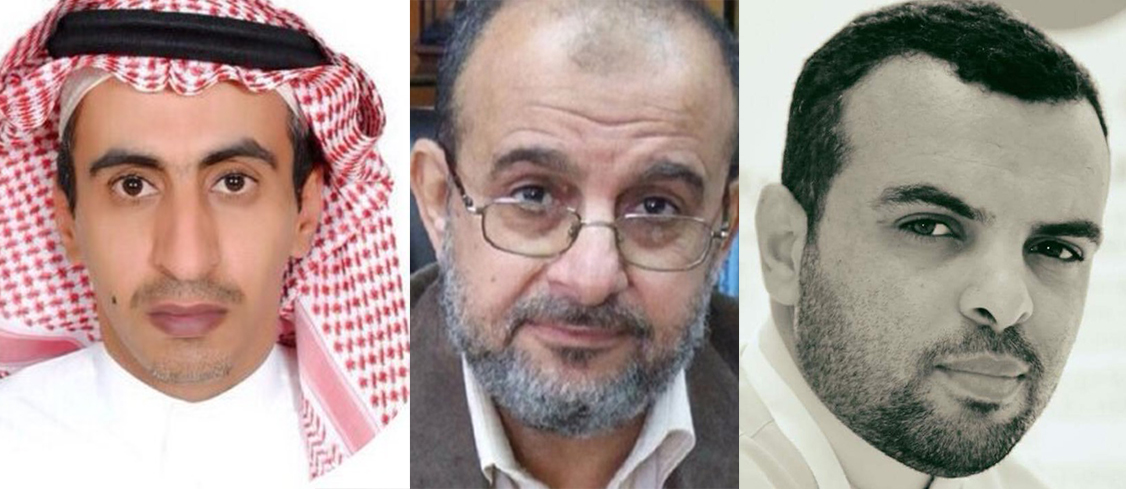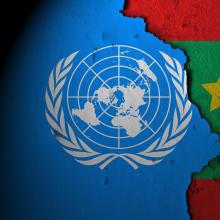May 03, 2019

Upon the release of its 2019 World Press Freedom Index, Reporters Without Borders (RSF) declared the Middle East and North Africa to be “the most difficult and dangerous” region for journalists worldwide. Out of the nineteen countries where the situation of press freedom is considered by RSF to be “very serious”, countries of the MENA region accounted for more than a third, with Egypt, Libya, Bahrain, Yemen, Saudi Arabia, Syria and Sudan among those listed.
MENA Rights Group continues to document cases of severe abuses committed against journalists and media workers across the region, while at the same time governments make moves to pass legislation that would severely limit press freedom. This trend has seen a worrying advancement in recent years, with Jordan, Egypt, Sudan and Oman joining a number of other countries in the region in attempting to pass laws that fail to meet international standards on freedom of expression.
On RSF’s index, Sudan ranked lowest out of MENA countries at 175 out of 180 countries worldwide. In recent months, MENA Rights Group has documented cases of a number of journalists in Sudan who have been arrested, banned from working, and subjected to other forms of judicial harassment by the National Intelligence and Security Service (NISS).
Salma Al Tigani, Osman Shabouna, Ahmed Gouda and Ahmed Younis all had their right to freedom of expression violated by the NISS between 2016 and 2018, as a result of which MENA Rights Group requested the intervention of the UN Special Rapporteur on the promotion and protection of the right to freedom of opinion and expression. RSF noted that in the context of anti-government protests that spread across Sudan from December 2018 onwards, journalists were “among the leading victims of the regime’s crackdown”.
In Saudi Arabia, which fell three places in RSF’s ranking, sitting at 172 out of 180 countries in 2019, journalists were among the many victims of the government’s far-reaching crackdown on dissent. While the brutal killing of journalist Jamal Khashoggi in the Saudi consulate in Istanbul dominated headlines across the globe, abuses against journalists inside the country were no less severe.
In January 2019, MENA Rights Group requested the intervention of the UN Special Rapporteur on freedom of expression regarding the case of Marwan Al Muraisy, a Yemeni journalist who remains missing since his arrest in Saudi Arabia in June 2018. Journalist Turki Al Jasser also remains missing since he was arrested from his home in Riyadh on March 15, 2018. In November 2018, rumours emerged that Al Jasser had died as a result of being tortured while in detention.
In another case of enforced disappearance in Saudi Arabia, in February 2019, Jordanian journalist Abdelrahman Farhaneh was on his way to Dammam airport when he was stopped at a checkpoint controlled by the Saudi State Security Service and arrested. To date, the Saudi authorities have not provided his family with any official information regarding his whereabouts.
While abuses against journalists continue unabated across the region, a worrying trend in recent years has been the attempts made by governments to pass laws addressing issues such as cybercrime and fake news that fail to comply with international standards on freedom of expression.
In November 2018, MENA Rights Group requested the intervention of the UN Special Rapporteur on freedom of expression over draft amendments to Jordan’s Cybercrime Law which would further restrict online freedom of expression in the country. In its submission, MENA Rights Group also highlighted a number of issues with the current version of the country’s Cybercrime Law, under which journalists can be found guilty of defamation and imprisoned over print articles that appear online.
Following pressure from civil society groups and activists, who were concerned that the proposed amendments would further restrict freedom of expression and press freedom in the country, the text was withdrawn on December 9, 2018. However, soon after, on December 12, revised amendments were introduced before the parliament that failed to address changes requested by the UN Special Rapporteur in a letter sent to the Jordanian authorities the week prior.
MENA Rights Group once again requested the Special Rapporteur’s intervention to ensure that the text – which is currently being examined by the Senate, the upper house of the Jordanian parliament – is brought into line with international human rights standards.
Similarly, in February 2019, MENA Rights Group raised concern with the UN Special Rapporteur over Iraq’s reintroduction of a controversial draft of the Law on Information Technology Crimes, which had been withdrawn in 2013 following pressure from civil society organisations. Among the many concerns raised by MENA Rights Group was the fact that the law could be used against journalists, creating a climate of self-censorship and further limiting their ability to carry out their work unrestricted.
On March 1, MENA Rights Group was among ten civil society organisations that called on the Iraqi Council of Representatives to withdraw the text, saying “it would constitute a serious setback for freedom of expression” in the country.
Regionally, Egypt maintains one of the most oppressive legal frameworks for the media and, as reflected by its fall by two points on RSF’s 2019 Index, the authorities’ restrictions on press freedom are only increasing. In its submission to the UN Human Rights Council ahead of Egypt’s Universal Periodic Review (UPR), scheduled for November 2019, MENA Rights Group raised, among other issues, the authorities’ ongoing crackdown on freedom of expression.
Despite many recommendation received by Egypt during its last UPR in 2014, journalists continue to make up a significant proportion of the victims of this crackdown. Journalists have been forcibly disappeared, arbitrarily detained, charged with terrorism-related crimes and harshly sentenced, with a set of repressive laws bolstering the authorities’ sense of legitimacy to carry out these abuses.
Over the course of the past year, this legal arsenal has been fortified. Law No. 180 of 2018 regulating the Press, Media, and the Supreme Council for Media Regulation came into effect in August 2018, allowing the authorities to censor and prevent the publication of content deemed to be prohibited on the basis of vague criteria, while also establishing a strict licensing process that restricts the work of independent media.
In addition, Law No. 92 of 2016 on the Institutional Regulation of the Press and the Media was amended in 2018 with provisions that “provide the authorities with overbroad powers to censor information” according to the UN Special Rapporteur on freedom of expression. Finally, the 2018 Cybercrime Law further expanded the authorities’ power to censor or block websites that publish content not in line with their views, including those of human rights organisations and media outlets.
MENA Rights Group is alarmed by the deterioration in press freedom across the MENA region in recent years, evidenced by the number of violations committed against journalists as well as the attempts by governments across the region to legitimise these abuses through enacting legislation.
As asserted by the United Nations, “[m]edia freedom and access to information feed into the wider development objective of empowering people”. When freedom of the press is restricted, many other fundamental human rights and freedoms also suffer. We therefore urge governments across the MENA region to recognise the essential role played by the media, and to ensure that freedom of expression is protected and promoted, and that independent media is permitted to flourish.
Image: Journalists Turki Al Jasser, Abdelrahman Farhaneh and Marwan Al Muraisy remain disappeared since their arrests in Saudi Arabia between March 2018 and February 2019.






